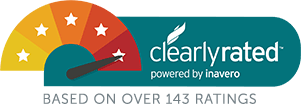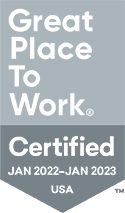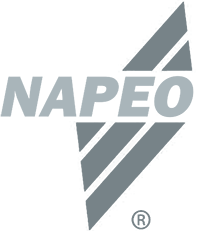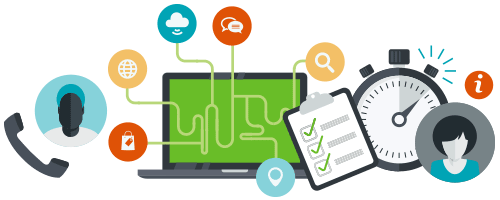Highlights
- PEOs can help you with your business objectives by lightening the load on your HR team.
- Choosing the right PEO for your business is extremely important. It must align with your budget and needs.
- Take the first step to achieve your business goals and continue growing. Schedule a free HR consultation with Worklogic HR today!
To have a successful company, you should optimize your business operations and improve your workforce management. To achieve this, having a solid HR operation is crucial. Discover What Is a PEO, how these strategic partnerships can empower your business with expert HR solutions, cost-effective practices, and a path to greater growth.
Join us as we demystify the co-employment relationship, unravel the benefits of PEO services, and guide you through the crucial steps to choosing the perfect PEO for your unique business needs!

What Is a PEO? PEO Meaning
PEO stands for Professional Employer Organization. It is a company that offers comprehensive Human Resources solutions as outsourced services, allowing you to focus on your operations.
PEOs can be particularly beneficial for small and medium-sized businesses that may not have the resources or experience to manage HR functions effectively. Currently, PEOs provide services to 173,000 small and mid-sized businesses, employing 4 million people.
It is important to note that the details of PEO services may vary, and companies considering such an arrangement should carefully evaluate the services offered by different PEOs to ensure they meet their specific needs.
This Is How a PEO Works
PEOs can offer many different models, but this is a general overview of how a PEO works:
- Establishing a collaborative relationship: The client company and the PEO enter a co-employment agreement. This agreement stipulates the division of employer responsibilities between the client company and the PEO.
- Transferring HR responsibilities: The client company transfers some Human Resources responsibilities to the PEO. This includes payroll processing, benefits administration, HR compliance, and other related functions.
- Payroll processing: The PEO is usually in charge of processing workers’ payrolls. This includes calculating and distributing paychecks, withholding taxes, and managing other payroll-related tasks.
- Manage employee benefits: PEOs typically offer access to various employee benefits, such as health insurance, retirement plans, etc. The PEO manages the administration of these benefits on behalf of the client company.
- Keeping up to date with HR compliance: PEOs help ensure that the client company complies with labor laws and regulations. This may involve managing documentation, handling workplace safety protocols, and addressing legal issues related to HR.
- Scalability and flexibility: PEO agreements are designed to be scalable, allowing companies to adjust the level of services based on their needs. This can be especially beneficial for small and medium-sized businesses.
Differences Between a PEO and Other Services
PEOs and other HR services vary in scope, structure, and client relationship. Key differences you should know are:
- Co-Employment vs. Outsourcing: Working with a PEO involves co-employment and the sharing of employer responsibilities, while traditional HR outsourcing does not establish a co-employment relationship.
- Shared Liability: Client companies and PEOs share employment liabilities and responsibilities, including liability for Workers’ Compensation and employment practices. In traditional HR outsourcing, the company outsources services without assuming legal responsibilities with employees.
- Payroll and Benefits: PEOs often provide comprehensive HR services. The PEO bundles these services as part of the co-employment relationship. HR outsourcing may involve contracting specific HR functions that may not include these services.
Advantages & Drawbacks of Using a PEO
A PEO can offer advantages and drawbacks to businesses. Consider your needs carefully before engaging with one.
Advantages:
- HR Expertise: PEOs typically have HR professionals who specialize in various aspects of Human Resources. This expertise can be valuable for businesses that may lack in-house HR capabilities.
- Cost Savings: PEOs may help businesses achieve cost savings by bundling HR services, potentially reducing overhead costs.
- Access to Employee Benefits: PEOs offer a variety of benefits, including health insurance and retirement plans. Small and medium-sized businesses can use the PEO’s bargaining power to provide competitive advantages.
- Focus on Core Business: By working with a PEO, businesses can focus more on their core operations and strategic objectives, allowing the client company to concentrate on growth and productivity.
Drawbacks:
- Loss of Control: Engaging with a PEO means entering a co-employment relationship, resulting in a loss of some control over HR functions. Decision-making authority is shared between the client company and the PEO.
- Limited Customization: PEO services are often standardized, and there may be limitations on customization. Businesses with unique HR needs or specific company cultures may find the one-size-fits-all approach less suitable.
- Complex Transition: Transitioning into a PEO arrangement can be complex. It may involve transferring existing HR processes and systems to the PEO, and employees may need time to adjust to the new employment structure.
- Limited Influence on Benefits: While PEOs offer access to employee benefits, businesses may have limited influence over the selection and design of those benefits. The PEO makes decisions based on the collective needs of all the clients it serves.

How To Choose a PEO
To choose a Professional Employer Organization for your business, consider your needs, the services offered, and the co-employment terms. Here’s a guide:
- Assess Your Needs: Identify the HR functions you need help with, such as payroll processing, benefits administration, HR compliance, risk management, and employee relations.
- Define Your Budget: Set a budget for HR services. Know the fee structure of each PEO. Consider the overall cost and services provided.
- Research PEO Options: Research and compile a list of PEOs that align with your business needs. Look for PEOs with a track record of serving businesses in your industry and size.
- Evaluate Services Offered: Check each PEO’s services to ensure they cover your needed HR functions. Look for comprehensive offerings that provide value.
- Examine Benefits Packages: If employee benefits are crucial to your business, examine each PEO’s benefits package. Consider the range of options and the flexibility to customize benefits based on your workforce needs.
- Client References and Reviews: Ask for client references and check online reviews to gauge the satisfaction of businesses that have worked with the PEO.
- Consider Flexibility and Scalability: Evaluate the flexibility of the PEO’s services and its ability to scale with your business. Consider how well they can accommodate changes in your workforce size and structure.
- Negotiate Terms: Work closely with the PEO to negotiate terms that align with your business goals. Pay attention to contract terms, service level agreements, and termination clauses.
Choosing the right PEO is important for your business. Take your time to evaluate your options, ask questions, and select the one that meets your needs and can grow with your business.
“Running a business is complicated enough without having to be an HR expert. You deserve a partner dedicated to your business success.”
– Worklogic HR
Get Comprehensive HR with a Trusted PEO: Worklogic HR
At Worklogic HR, we aim to help you improve your business efficiency by providing integrated HR solutions and streamlined processes. We offer comprehensive solutions tailored to your business needs, covering Human Resources, Payroll Administration, Employee Benefits, and Risk & Compliance. We have trusted industry advisors and an advanced technology team to help you with your toughest HR challenges.
Whether you choose Administrative Services Outsourcing (ASO), the entire suite of services as a Professional Employer Organization (PEO), or payroll assistance, we work with you every step of the way.
Take the first step towards business excellence by scheduling a free HR consultation with Worklogic HR today!








